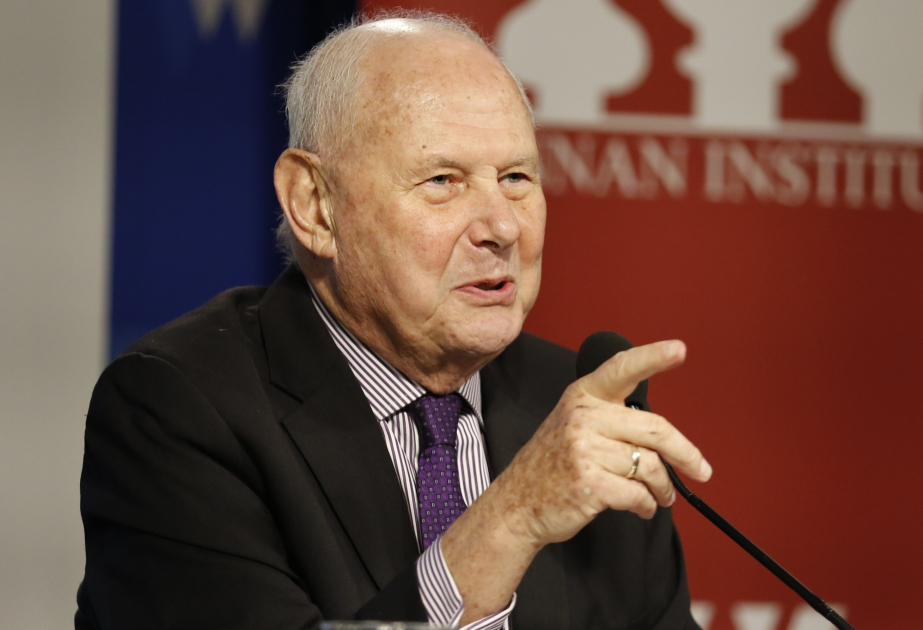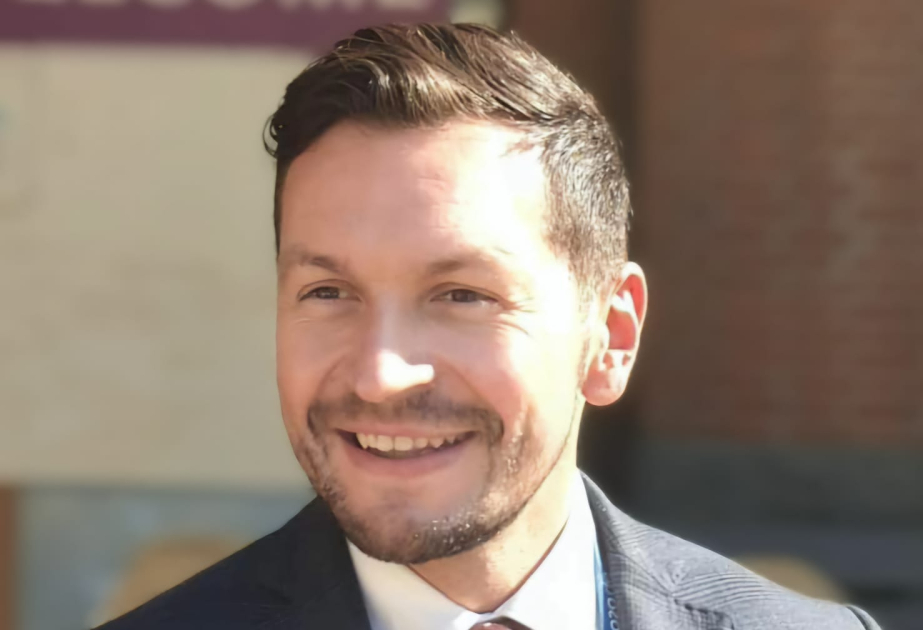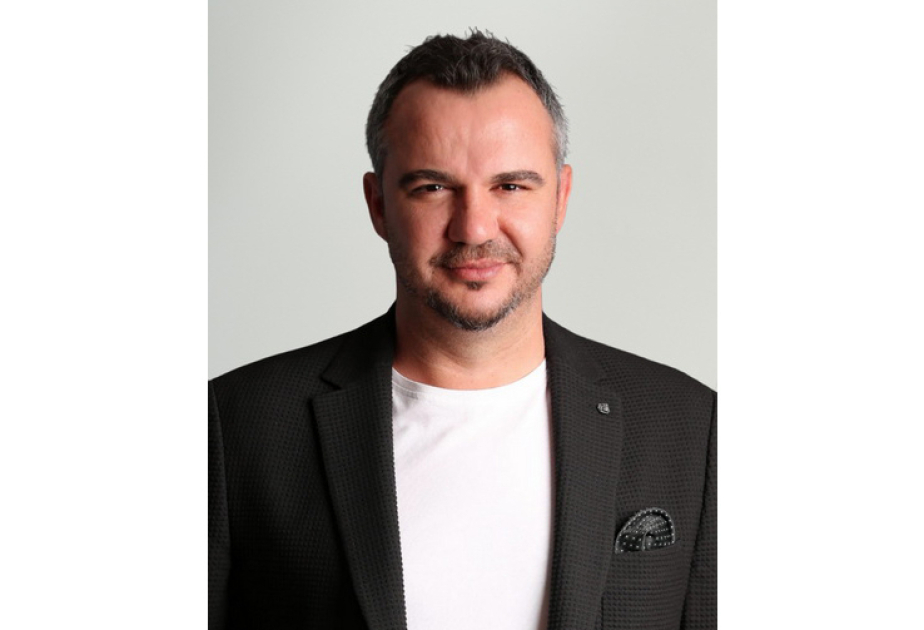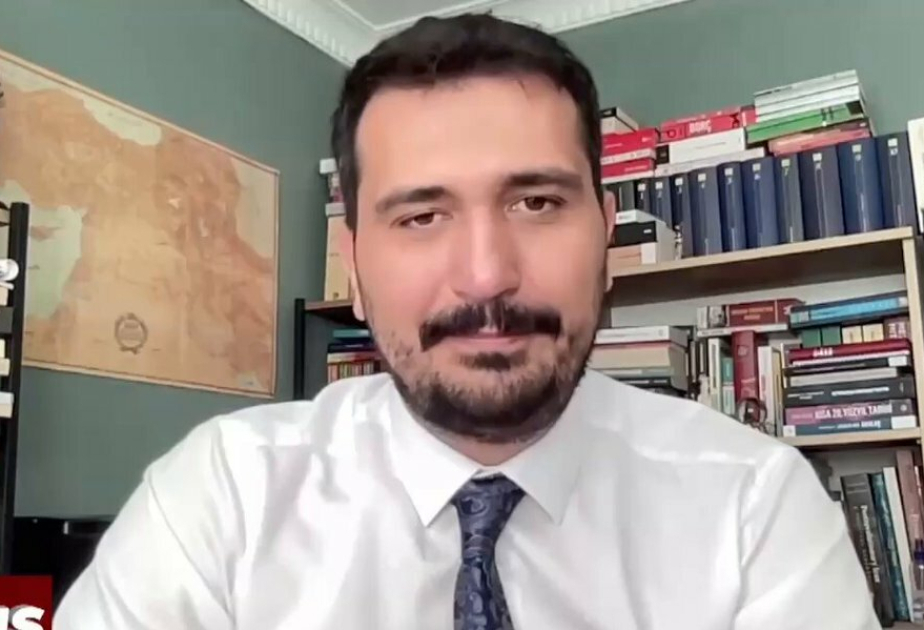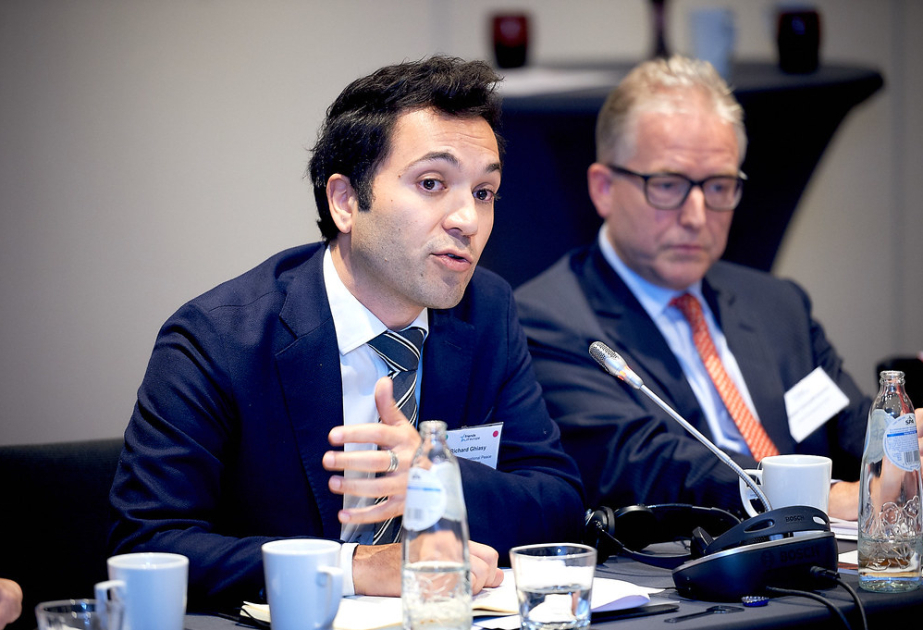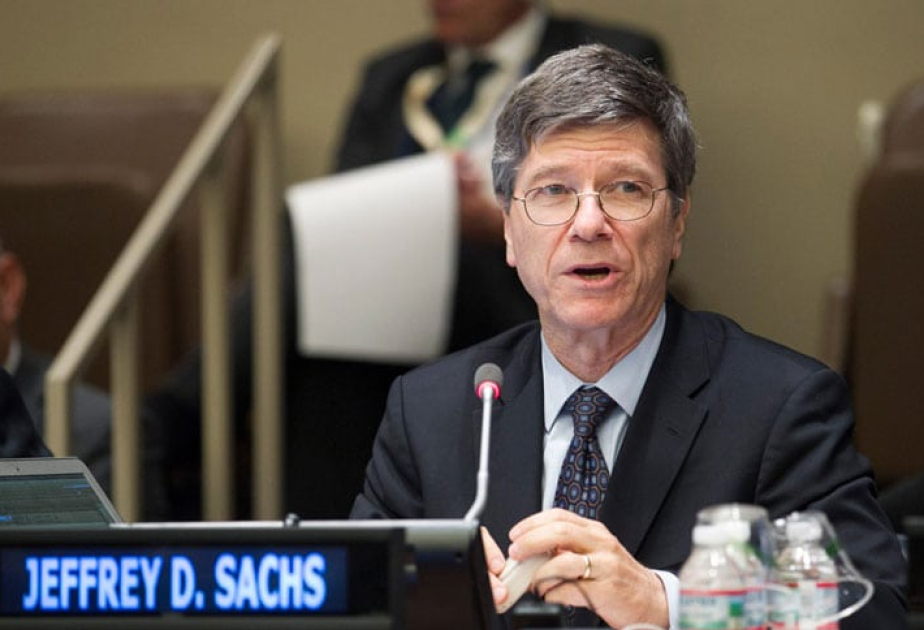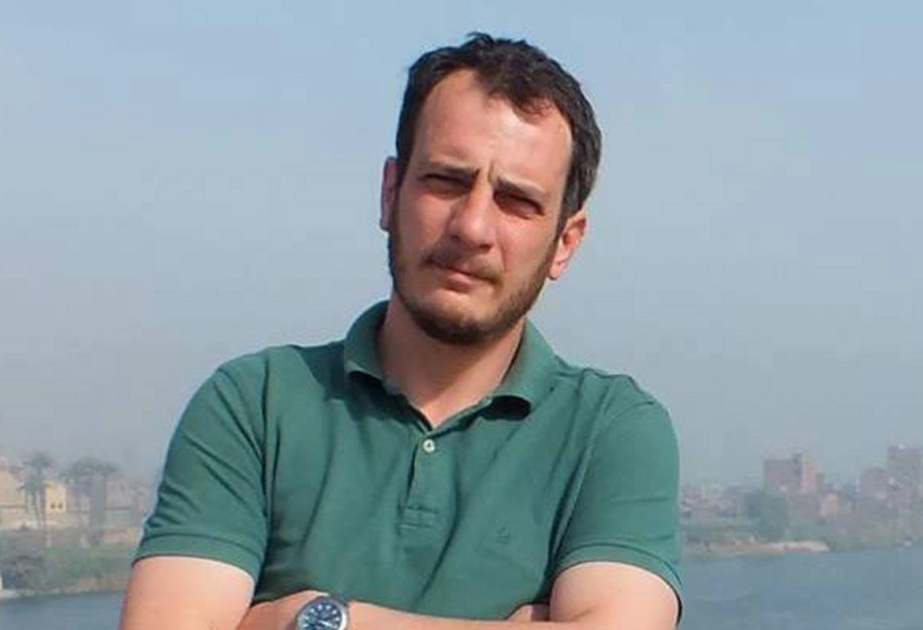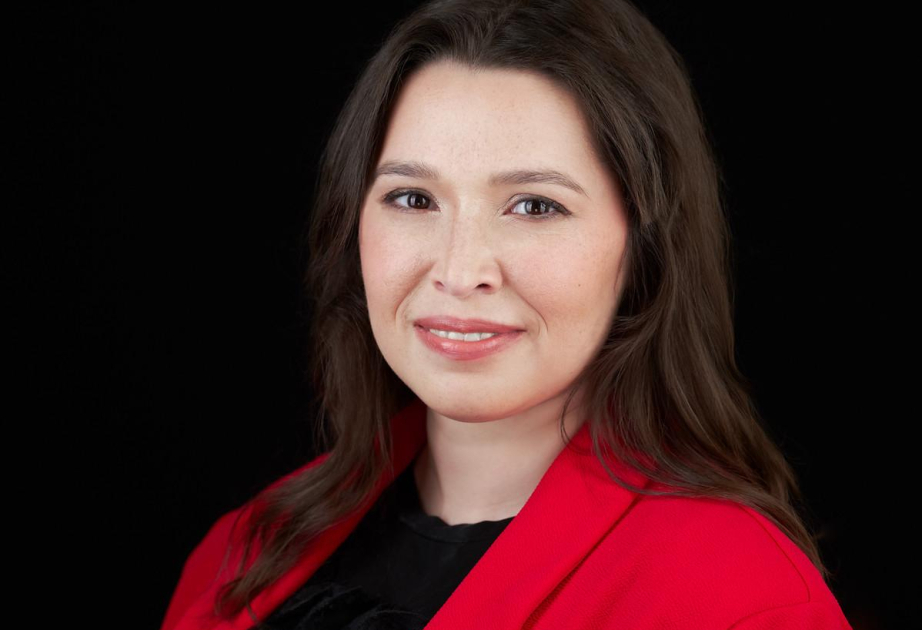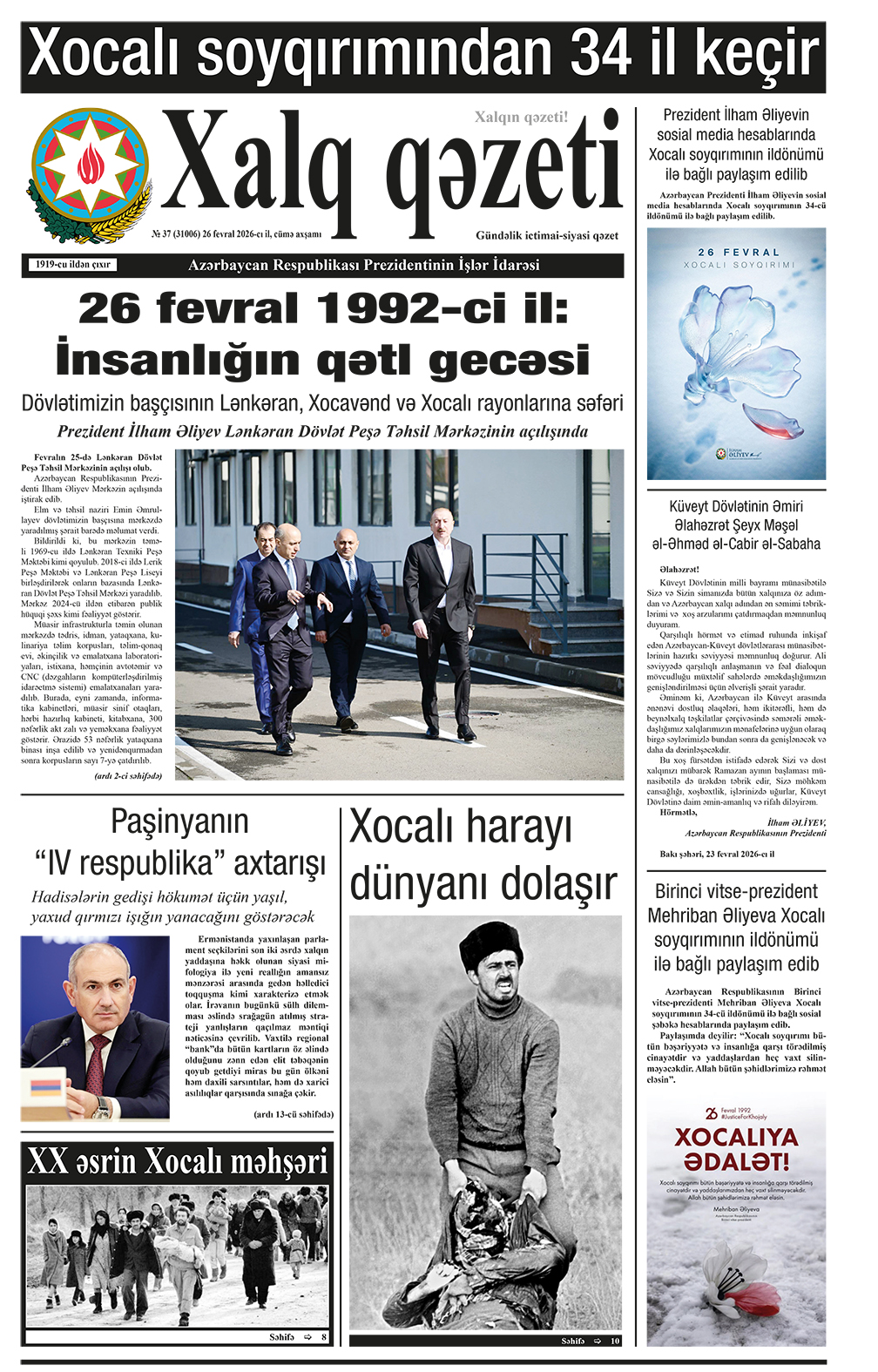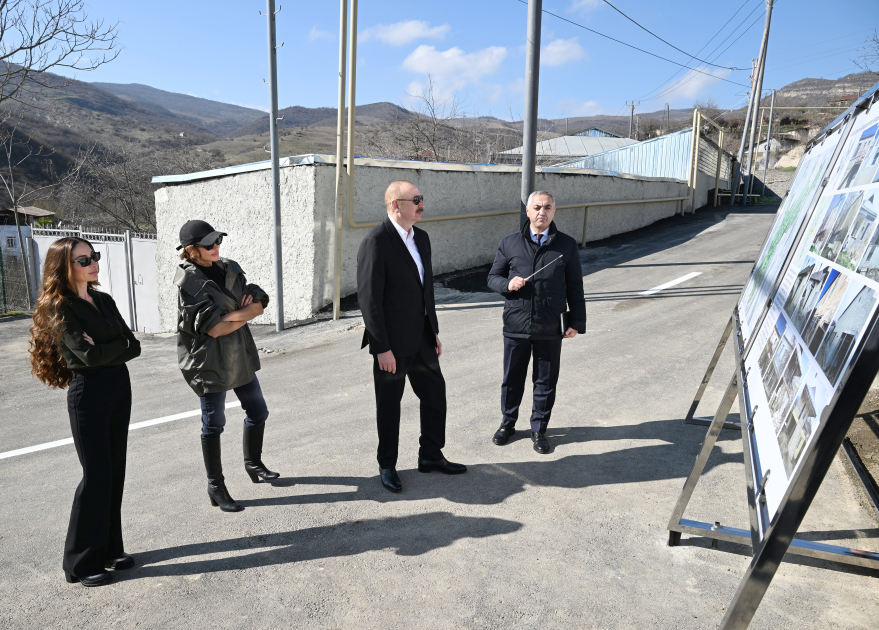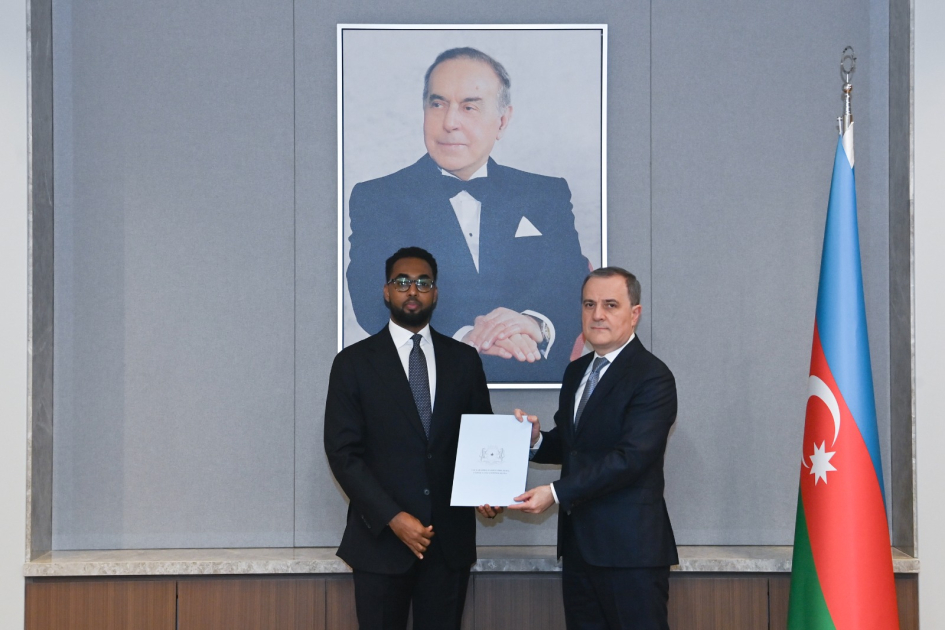AZERTAC presents an interview with Chairman and Founding Director of the Central Asia–Caucasus Institute and the Silk Road Studies Program, Professor at the Paul H. Nitze School of Advanced International Studies of Johns Hopkins University, Senior Fellow at the American Foreign Policy Council, former President of Oberlin College and the Aspen Institute, as well as a distinguished expert on the history and contemporary issues of Central Asia and the Caucasus S. Frederick Starr.
- How do you assess the role of Azerbaijan as an energy and logistics hub in Eurasia?
- Azerbaijan's role as an energy and logistics hub is already a major one, and it is inevitable that its importance will grow. But the real question is bigger, and that is: what is Azerbaijan's role as a sovereign state, not just by itself, but in the region of which it is a part? I am impressed by the fact that these difficult times are, in fact, potentially a prelude to a new golden age for Azerbaijan—not as a soloist in the region, but as a prominent member of a choir of voices of different sovereignties, both in the Caucasus and in Central Asia.
In other words, I think we are not just talking about logistics. That is a means, but it is not the end. The end is for Azerbaijan to emerge as a powerful and sovereign state that plays an active role in regional coordination and leadership. I think such an era is beginning to dawn, and I welcome it.
Such a development, I should stress, is not against anyone. If anyone, including your northern neighbour, decides that this is against them they are simply mistaken. The emergence of Azerbaijan in a more significant regional role is inevitable, given the country’s logistics, resources and, equally important, talent. So, this is not against anyone; it is for Azerbaijan and the region.
-Your book “Lost Enlightenment” highlights the importance of transport corridors. In your view, what is the potential of Azerbaijan within the framework of the Middle Corridor? What opportunities does the development of this route create for strengthening the country’s transit role?
- The opening of what you call the Middle Corridor is inevitable and will bring tangible benefits to both the East and the West. However, I do not believe it should be our only focus. We should also be talking about the great corridor to the south, stretching toward the Indian subcontinent and Southeast Asia.
I would remind you that not far from the city of Baku are the remains of an ancient Indian trading post that thrived for many centuries. Why did it exist? Because Indian merchants in Baku and, conversely, traders from Baku in India, were once part of a vibrant network of exchange.
This history shows that there was once a smooth and active flow of transport and communication across the territory we now call Afghanistan. Reviving such a route represents an immense and important opportunity. In this, Azerbaijan could take a significant role, working together with its neighbours in the Caucasus but also, significantly, with Turkmenistan, Kazakhstan, Uzbekistan, and Tajikistan.
It is a promising and exciting vision, but one that comes with complex political, organizational, and economic challenges. Such challenges demand leadership. I believe Azerbaijan should play a far more prominent role in this conversation.
In truth, Azerbaijan is part of what we might call “Greater Central Asia.:” In this capacity, it can play a vital role in opening a transport corridor to the South—through Afghanistan, Pakistan, and Iran and onward to India and all southeast Asia
-What economic risks and opportunities do you see for the countries of the South Caucasus in the context of restructuring global supply chains? Can the region develop its own economic model independent of Russia, China, and the EU? What do you think could serve as a catalyst for true economic integration in the region?
- Today a significant possibility is gradually emerging: to view the South Caucasus as a cohesive whole—in other words, Azerbaijan, Armenia, and Georgia together. This is due largely to what appears to be a true breakthrough between Armenia and Azerbaijan. To be sure, this process is not yet complete, but important steps have been taken in good faith and with a constructive spirit by both sides.
Beyond this breakthrough, however, lies the crucial need to establish regularized dialogue within the Caucasus. This, I believe, is one of the most important issues facing the region today: creating structured, ongoing dialogue between Georgia, Armenia, and Azerbaijan. This does not imply that Azerbaijan endorses the governments of the other two countries, or vice versa. But they must all recognize that they stand to gain far more by working together than by acting alone as isolated soloists. Restored intra-regional links can then form the basis for new types of relations with surrounding powers, including Türkiye, Iran, Ukraine, the EU and Russia.
Once such regularized regional dialogue is in place, it will become possible to consider such initiatives as a regional development bank, supported by all the major global financial powers. Such an institution would benefit everyone involved. For example, it could prioritize development in mountainous areas—a shared challenge since all three Caucasus countries have relatively underdeveloped mountain regions. A regional development bank could provide targeted solutions to many such issues.
The prospects are indeed great. Azerbaijan and its neighbours in the Caucasus are at a turning point. Credit for this progress belongs to the wise leadership of both Azerbaijan and Armenia. We must acknowledge, however, that external factors also played a role in catalysing these developments.
- How do you assess the economic significance of the Zangezur Corridor in the context of regional integration of the South Caucasus? What specific economic benefits do you believe Azerbaijan, Armenia, and their neighboring countries can gain from the implementation of this transport route?
- This is a very positive step. However, before one can reap the economic benefits of this new corridor—which hold great potential for the entire region—Baku and Yerevan must first overcome the reactions coming from Tehran. I also include Moscow.
-Given the changing geopolitics, how do you assess the prospects of expanding energy cooperation between Azerbaijan, Central Asia, and the EU?
- However, daunting the impediments, this development is inevitable and all the countries involved deserve congratulations for their wise leadership in making it happen. The major international corporations participating in this cooperation should also be commended.


